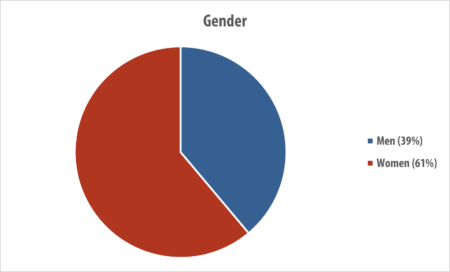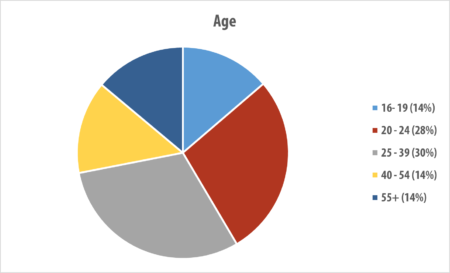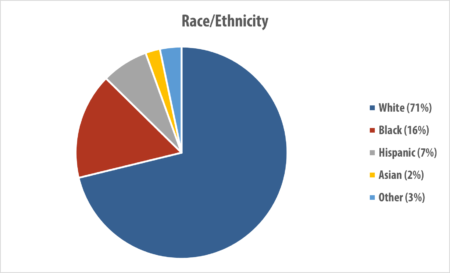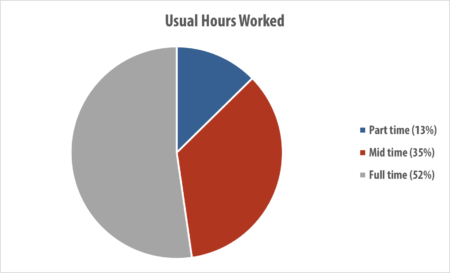Missouri workers are the engines of our economies. When they earn a decent wage and can care for their health and their families’ health without risking their jobs or paychecks, then they can fully participate in their communities and contribute to Missouri’s economic growth.
Missouri voters will soon have the chance to put in place a common sense set of guardrails to ensure that workers can reach their full potential and build prosperity for their families and communities, as well as our state’s economy. An initiative on the 2024 ballot would build quality jobs by providing a much-needed raise to Missouri workers and guaranteeing earned sick leave for workers.
The 2024 ballot measure would:
Increase Missouri’s Minimum Wage To $15/Hour
- Missouri’s minimum wage would increase from $12/hour in 2023 to $13.75/hour in 2025 and $15/hour in 2026, with annual cost of living increases in subsequent years.
- The increase would give a much-needed raise to over 562,000 Missouri workers, who would earn an extra $1,083 annually – enabling them to further contribute to their local economies.
- Nearly 90 percent of these workers are adults over age 20 who work at least 20 hours a week.
- Nearly one in four Missouri kids live in households that would see an increased income, which has been proven to improve health and educational outcomes for children.
Allow Workers to Earn 5 To 7 Paid Sick Days Each Year
- Private sector, wage earning workers would earn one hour of earned sick time for every thirty hours worked.
- An estimated 938,000 Missouri workers do not currently have access to paid sick leave.
- The ballot measure’s paid sick leave provisions would reach 728,000 Missouri private sector workers.
Paid Leave Provisions of the Ballot Measure
The measure would guarantee paid sick leave to the vast majority of working Missourians who don’t currently have access, and would increase the amount of paid leave for some workers who currently receive fewer than seven days of sick leave per year.
Most Missouri employees would qualify for up to 7 days per year while the majority of Missouri businesses would provide 5 days per year.
Increased Minimum Wage Would Give a Much-Needed Raise to Nearly One in Four Missouri Workers
Increasing the minimum wage to $15/hour will impact over 562,000 Missouri workers and boost their income by $1,083 annually on average. Over one in three Black and Hispanic workers and nearly one in three working women would see these increases.
The vast majority of Missourians impacted by this increase are adults over age 20 (86%) who currently work more than 20 hours per week (87%). This includes over 78,000 workers age 55 or over. In fact, the number of older workers who would benefit is higher than the number of teenagers who would see increased wages.
Raising the Minimum Wage to $15 Per Hour Would:
Provide a Critical Boost to Missouri Children & Families
Inject Over $609 Million in New Wages Into Missouri’s Economy
This increase in wages would have ripple effects that benefit all Missourians as low wage workers are likely to spend their earnings in local communities. These dollars then increase demand for the products and services provided by flowing in and out of local businesses, boosting job growth and the economy.
Raising the Minimum Wage is a Proven Strategy
During the phase-in of Missouri’s last minimum wage increase, Missouri’s unemployment rate went down at a rate higher than the national average and higher than each of Missouri’s neighbors that did not increase the minimum wage. This is consistent with prior research that suggests increases in the minimum wage increase employment, in part by reducing turnover among employees.
Nearly One in Three Missouri Workers Could Benefit from Guaranteed Access to Earned Sick Leave
Many Missouri workers are able to stay home while sick, giving them time to recover and reducing the spread of illness to coworkers, clients, and customers. But too many of our low-wage friends and neighbors don’t have that luxury and must choose between going to work sick or risk losing pay or their job. This is especially true in public-facing occupations like sales and service (including restaurant/food service & healthcare occupations).
Percent of Workers & Occupations That Lack Access to Paid Sick Leave
Guaranteed earned sick leave has the potential to reach the nearly 728,000 private sector Missouri workers who currently have no paid sick leave, or over 1 in 3 Missouri workers. In addition, many workers who already have access to earned sick leave will also benefit as around half of workers with dedicated paid sick days currently receive fewer than the 7 days that most Missourians would receive under this initiative.
Increasing Workers’ Access to Earned Sick Time Would:
Provide a Critical Boost to Children & Families
Generate Over $600 Million in Societal Savings Each Year
These savings are generated primarily through reduced spread of contagious disease, as well as a more stable and productive workforce, reduced turnover and workers compensation claims.
APPENDIX
Table 1: Estimated Effects of Increasing Missouri’s Minimum Wage to $15 an Hour
Table 2: Estimated Number and Share of Missouri Workers with Increased Wages
Demographic Breakdown of Missourians Who Would See Wage Increases





